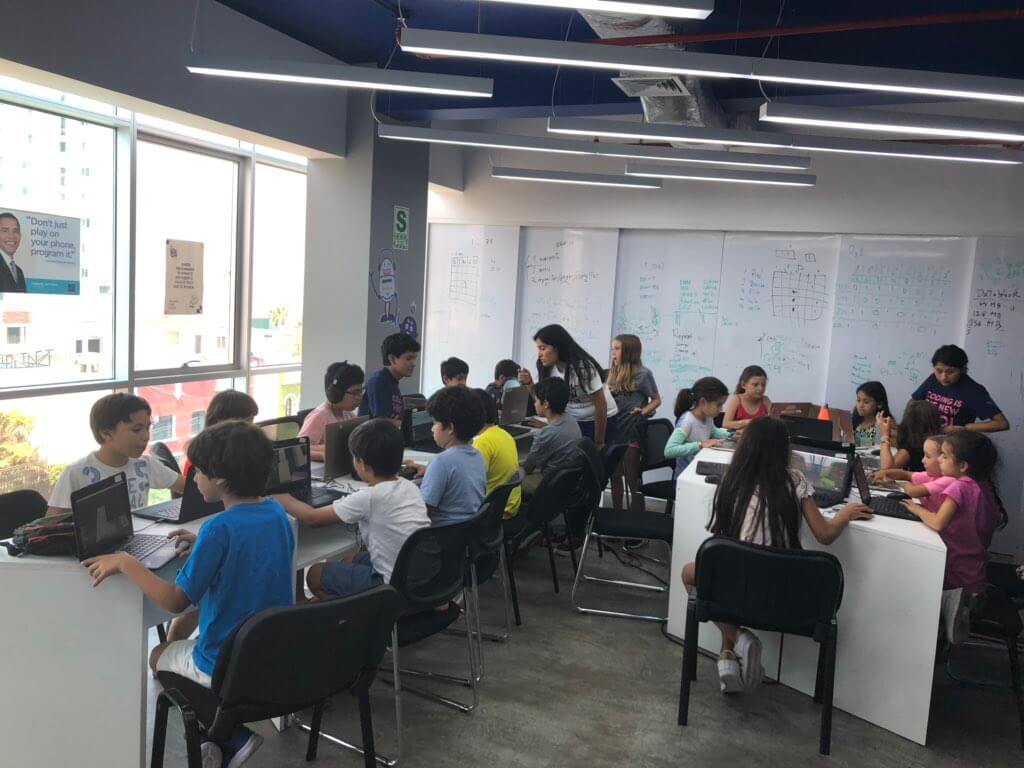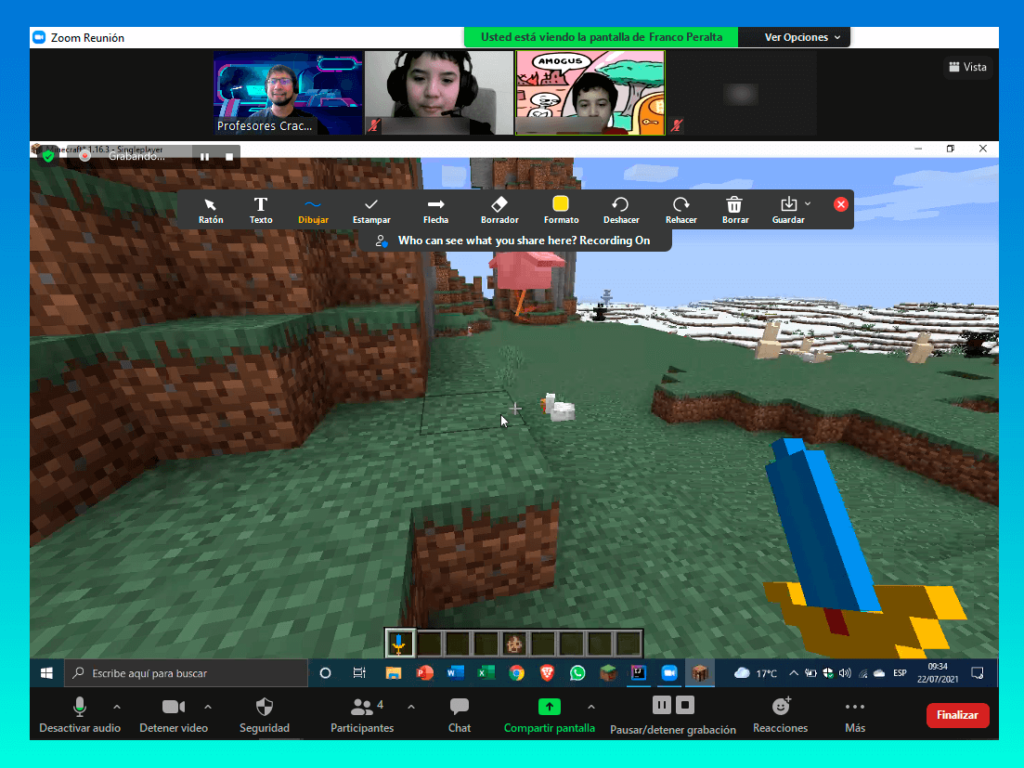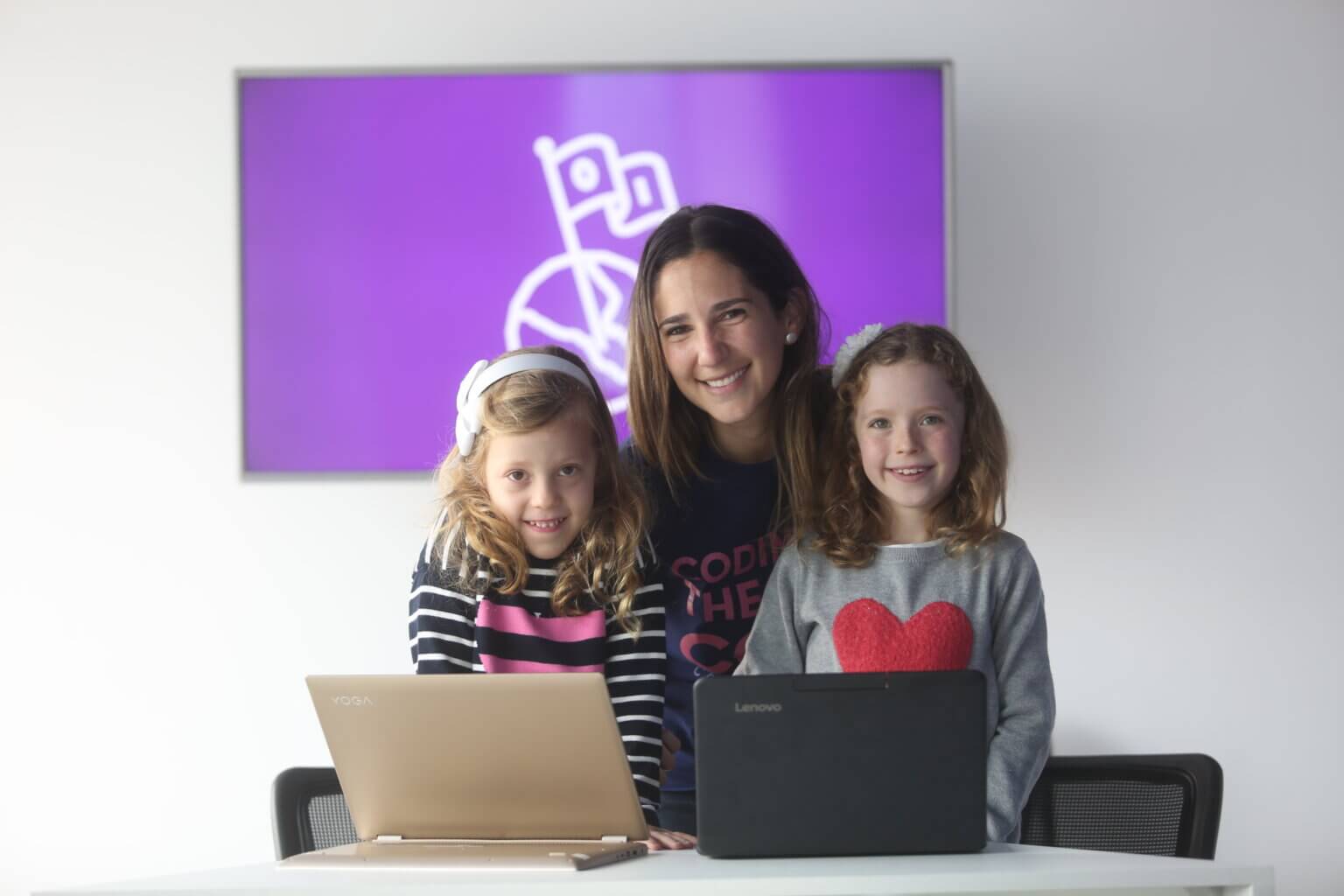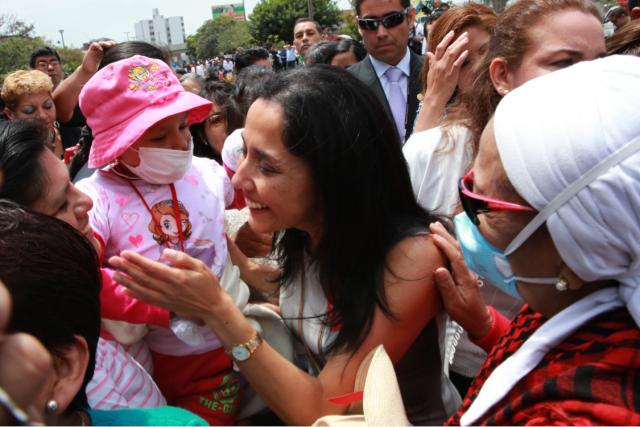This article was originally published by Diego López Marina on Peru Reports, a sister publication.
In 2018, when Maria del Mar Velez founded the Peruvian startup Crack The Code, she had one thing clear: her mission was to transform education in Latin America by training children programming languages. In the next five years, she believes it will be as important for success in business as knowing English.
“There will come a time, five years from now, where programming education is going to be obvious and necessary. Parents must realize that these will be crucial skills that will open doors for their children and that not all time on a computer is bad,” Velez said in an interview with Peru Reports.
“English is necessary and I feel that this is the ‘English of the future,'” said the CEO of the startup based in Lima, Peru. “A child can change the family income, then a city, a country, a region.”
Crack The Code specializes in online programming courses for children and teenagers. So far this year the company counts 55 collaborators, 1,300 active students in more than 21 countries and was selected by HolonIQ as one of the 100 most promising Edtech companies in the region.
In 2018, Velez invested all her savings to create Crack The Code and started the business with just 20 students. But she had a clear objective: “to undertake something that has a social impact and not only economic results.”
“We give access to low-income children with scholarships, but also being profitable and growing throughout the region. We have made alliances with foundations and NGOs to reach public schools,” she said.

According to Velez, Crack The Code seeks to combat technological illiteracy, empower its students to be creators of technology and have the tools to take advantage of opportunities in the future, where engineers will be increasingly necessary.
Peru still faces great challenges in advancing its education system and technology sector. According to the latest data from the Ministry of Education, 60% of educational institutions do not have adequate technological equipment, 79% of schools do not have access to the Internet and 55% of teachers don’t have the skills to use digital technologies in the classroom.
Despite the technological gap, Peru currently has around 20 edtech companies that, in 2020, received more than USD $20 million in financing from national and foreign investors, according to an analysis by Hero Startup.
“At Crack The Code we seek to complement traditional education, but in a way that children have fun learning and become experts,” Velez said.
“Learning programming gives you a logical structure to solve problems in different and creative ways,” she added.
How Crack The Code works with children
Crack The Code has an educational and pedagogical innovation team that develops strategies and adapts platforms to teach classes, according to the CEO.
“Continuous innovation is very important. It must be taught through technological platforms to improve the educational experience. On the other hand, we have the content, which must constantly evolve, reflecting what our students ask for and want,” she said.

Crack The Code has courses to create video games, courses for child programmers, video editing and other classes on design and creativity, including their popular “learn to program with Minecraft” course.
“Perhaps in a year we will release a crypto or blockchain course for children. Who knows? But we don’t want to overwhelm them either, because you have to start with the basics and gradually evolve,” she said.
The company’s teachers are all engineering students in their last years of university who “love their career and at the same time need an economic income while they study.”
“They want to share their passion and spread the love of technology to children,” she assured.
Velez explained that after hiring the teachers, they train them, pay them for that training, and finally pay them for hours to teach.
“It’s a win-win,” she assured.
Peru’s outlook with EdTech
According to Velez, with the pandemic there was a “boom of EdTech startups in Peru,” because “there is a great need to correct educational problems.”
“We love to see more and more startups that generate impact in Peru.”

And the company is seeing some traction. In December of last year, Crack The Code raised $2.7 million in financing from Kaszek Ventures.
“It is an achievement to have earned the seal of approval from Kaszek, which is the number one fund in the region. That means that we show the country and the world that we have something valuable and that we are on the way to enhancing it,” she said.
Velez said that Crack The Code “continues to grow a lot in Peru,” but they are also “expanding to other Latin American countries, including Mexico, Colombia, and Central America.”
“We do webinars with schools, partnerships with technology companies, we give benefits to workers of large companies and we help with marketing,” she told Peru Reports.
For this year, Velez commented that they aim to “triple last year’s income and have 6,000 more active students by December.”
“We want to continue creating awareness of why this is important and has the power to change lives and families,” she concluded.
Sabrina Seltzer, Transfer and Entrepreneurship Leader at Tecnológico de Monterrey, one of the largest engineering universities in Latin America, said in 2022 that Peru is shaping up as a country with an ed-tech ecosystem with great potential, with other notable companies including Silabuz, Luteach, Code en mi Cole, uDocz, Ipluton, Wempo Academy, Musa and Queestudiar.
“In all startups we are always looking for engineers and there will come a time when universities will require programming knowledge from students. Technology is here to stay and therefore, from now on, we help to find a positive way to work with it and with our children”, Velez added.











